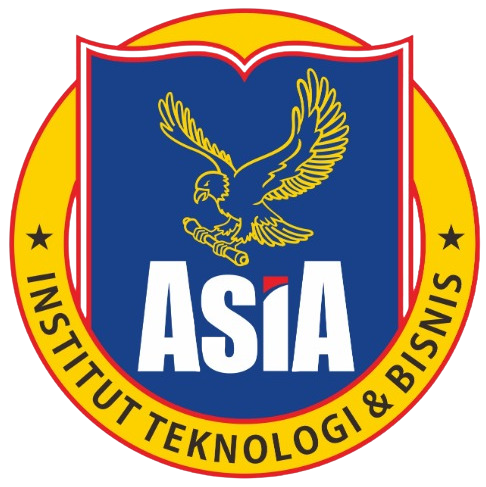Strategic and Potential Analysis of Tourism Village – Based Economic Development Through Flagship Halal Products in Aceh Province
DOI:
https://doi.org/10.32815/jibeka.v19i3.2380Keywords:
Tourist Village, MSMEs, Flagship Halal Products, Aceh Province, TOWSArticle Metrics
Abstract
This study conducts an in-depth analysis of strategies and potentials for developing the local economy through flagship halal products in tourist villages in Langsa City, Aceh Province. The research provides factual data on local potential, products, and their management, along with recommended strategies to enhance the role of tourist villages in improving the community’s economy. A descriptive qualitative approach was employed, using interviews with relevant government agencies and village officials, baseline surveys in two tourist villages across different sub-districts, and Focus Group Discussions (FGDs) to validate survey findings and assess the quantity and quality of flagship halal products. The data were analyzed using the TOWS method, structured within a discussion framework to derive comprehensive conclusions. The novelty of this study lies in its methodological approach and focus on flagship halal products as a backbone of the village economy. The findings highlight that strengthening integrated halal tourism packages—by combining culinary and handicraft products with tourist attractions, enhancing digital marketing outreach, and empowering village cooperatives as economic institutions is essential to increasing tourist interest and accelerating local economic growth.
Downloads
References
Mardhani M, Majid MSA, Jamal A, Muhammad S. Does international tourism promote economic growth? Some evidence from Indonesia. Geoj Tour Geosites . 2021;37(3):775–82.
Bassil C, Hamadeh M, Samara N. The tourism led growth hypothesis: The Lebanese case. Tour Rev. 2015;70(1):43–55.
Panahi H, Mamipour S, Nazari K. Tourism and economic growth: a time-varying parameter approach. Anatolia. 2015;26(2):173–85.
Wu X, Si Y, Mehmood U. Analyzing the linkages of rural tourism, GDP, energy utilization, and environment: Exploring a sustainable path for China. Heliyon. 2023;9(12).
UNWTO. Tourism and Rural Development: A Policy Perspective. Madrid; 2023. 48 p.
Teshome E, Dereje M, Asfaw Y. Potentials, challenges and economic contributions of tourism resources in the South Achefer district, Ethiopia. Cogent Soc Sci [Internet]. 2022;8(1). Available from: https://doi.org/10.1080/23311886.2022.2041290
Gocer O, Boyacioglu D, Karahan EE, Shrestha P. Cultural tourism and rural community resilience: A framework and its application. J Rural Stud [Internet]. 2024;107(April):103238. Available from: https://doi.org/10.1016/j.jrurstud.2024.103238
Haywood LK, Nortje K, Dafuleya G, Nethengwe T, Sumbana F. An assessment for enhancing sustainability in rural tourism products in South Africa. Dev South Afr [Internet]. 2020;37(6):1033–50. Available from: https://doi.org/10.1080/0376835X.2020.1806784
Yanan L, Ismail MA, Aminuddin A. How has rural tourism influenced the sustainable development of traditional villages? A systematic literature review. Heliyon [Internet]. 2024;10(4):e25627. Available from: https://doi.org/10.1016/j.heliyon.2024.e25627
López-Sanz JM, Penelas-Leguía A, Gutiérrez-Rodríguez P, Cuesta-Valiño P. Rural Tourism and the Sustainable Development Goals. A Study of the Variables That Most Influence the Behavior of the Tourist. Front Psychol. 2021;12(July).
Purwaningsih M, Purwandari B, Sunarso FP, Setiadi F. Harnessing e-collaboration for rural tourism recovery after covid-19: Dual analysis using swot and porter’s diamond model. Emerg Sci J. 2021;5(4):559–75.
Yang J, Zhu G. The Recovery Strategy of Rural Tourism in the Post-Epidemic Period. Proc 2021 Int Conf Soc Sci Big Data Appl (ICSSBDA 2021). 2021;614(Icssbda):136–40.
Perpiña Castillo C, Ribeiro Barranco R, Curtale R, Kompil M, Jacobs-Crisioni C, Vallecillo Rodriguez S, et al. Are remote rural areas in Europe remarkable? Challenges and opportunities. J Rural Stud. 2024;105(November 2023).
Magigi W, Ramadhani H. Enhancing Tourism Industry through Community Participation: A Strategy for Poverty Reduction in Zanzibar, Tanzania. J Environ Prot (Irvine, Calif). 2013;04(10):1108–22.
Liat CB, Mansori S, Abu NK, Yap CS. Tourist satisfaction in the Malaysia tourism industry: Relationship between service innovation and destination image. J Pengur. 2020;60:67–81.
Clauss T, Breier M, Kraus S, Durst S, Mahto R V. Temporary business model innovation – SMEs’ innovation response to the Covid-19 crisis. R D Manag. 2022;52(2):294–312.
Downloads
Published
How to Cite
Issue
Section
License
Copyright (c) 2025 Tengku Putri Lindung Bulan, Riny Chandra, Suri Amilia, Martahadi Mardhani

This work is licensed under a Creative Commons Attribution-ShareAlike 4.0 International License.
Happy reading. Don't be shy to cite








